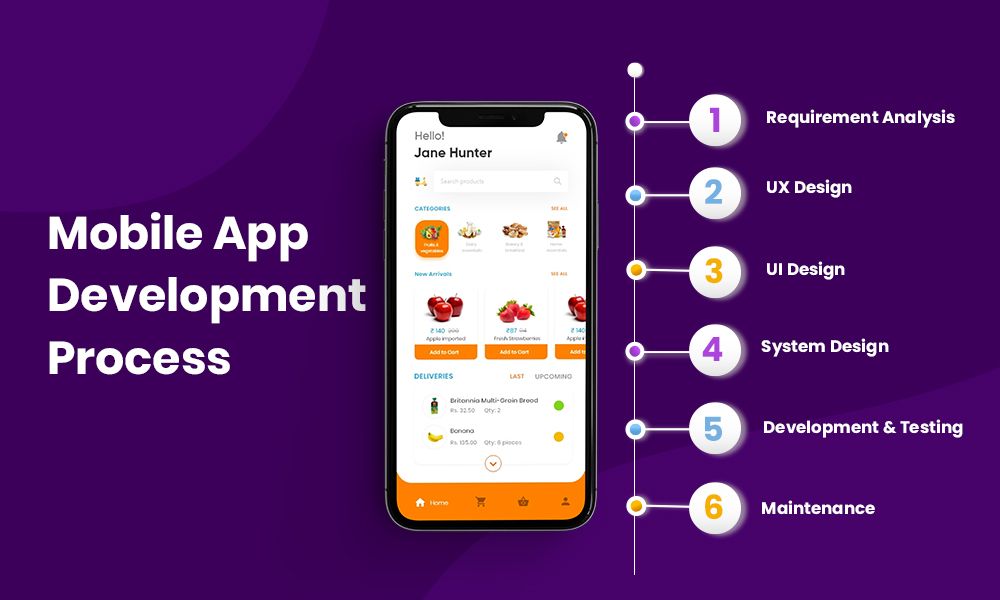
As the smartphone industry continues to thrive, more businesses are recognizing the potential of mobile app development to enhance their growth and reach a wider audience. With the ever-increasing number of mobile phone users, having a mobile app has become an essential tool for businesses to stand out and remain competitive in today’s digital age.
The Mobile Revolution
The rapid advancement in mobile technology has revolutionized the way people communicate, access information, and conduct business. Smartphones have become an integral part of our daily lives, offering convenience and efficiency like never before. From ordering food to booking a cab, everything can be done with just a few taps on our mobile devices.
This revolution has presented businesses with a golden opportunity to connect with their target audience in a more personalized and interactive manner. A well-designed mobile app can provide businesses with a direct channel to engage with their customers, increase brand visibility, and boost revenue.
Benefits of Mobile App Development for Businesses
Embracing mobile app development for business growth offers numerous advantages. Here are some key benefits:
Enhanced Customer Engagement
A mobile app allows businesses to establish a direct and personalized line of communication with their customers. Through push notifications, businesses can share new product launches, offers, updates, or any other relevant information, keeping customers engaged and informed.
Increase Brand Visibility
Having a mobile app gives businesses a prominent presence on their customers’ smartphones. Each time users scroll through their app list, they will come across the business icon, reinforcing brand awareness and recall. Additionally, a well-designed and visually appealing app can significantly enhance the brand’s image.
Improved Customer Experience
Mobile apps provide a smooth and seamless user experience. Businesses can tailor the app according to their target audience’s preferences and needs, allowing for a more personalized and efficient interaction. This enhances customer satisfaction and loyalty, leading to increased customer retention and ultimately, business growth.
Increased Revenue and Sales
Mobile apps offer an excellent platform for businesses to increase their revenue streams. By integrating convenient payment gateways, businesses can enable customers to make secure and hassle-free purchases directly through the app. Additionally, they can leverage in-app advertisements and partnerships to generate additional income.
The Process of Mobile App Development
Developing a successful mobile app requires careful planning and execution. Here is a brief overview of the mobile app development process:
1. Conceptualization
Identify your business objectives and define the purpose and functionality of your mobile app. Understand your target audience, their pain points, and how your app will solve their problems.
2. Design
Develop wireframes and design prototypes to visualize the app’s user interface (UI) and user experience (UX). Focus on creating an intuitive and user-friendly interface that aligns with your brand’s identity.
3. Development
This stage involves coding and development of the actual app. Choose a development platform (iOS, Android, or cross-platform) based on your target audience and budget. Ensure the app is optimized for performance and security.
4. Testing and Quality Assurance
Thoroughly test the app across different devices, screen sizes, and operating systems. Identify and fix any bugs or glitches. Ensure the app provides a seamless user experience and meets all functional requirements.
5. Deployment and Marketing
Launch the app on relevant app stores, such as the Apple App Store and Google Play Store. Develop a comprehensive marketing strategy to create awareness and drive downloads. Leverage social media, email marketing, paid advertisements, and other marketing channels to reach your target audience.
6. Maintenance and Updates
Maintain regular updates and improvements to enhance app performance, add new features, and fix any issues. Continuously gather user feedback to further refine the app and ensure it remains relevant and up to date.
Conclusion
Incorporating mobile app development into your business strategy can significantly contribute to your growth and success. By offering enhanced customer engagement, increased brand visibility, improved customer experience, and additional revenue streams, a well-designed mobile app can set your business apart from competitors and create a lasting impact in today’s digital marketplace.
Don’t miss out on the immense benefits of mobile app development – harness the power of technology to unlock new opportunities and propel your business towards sustainable growth.

